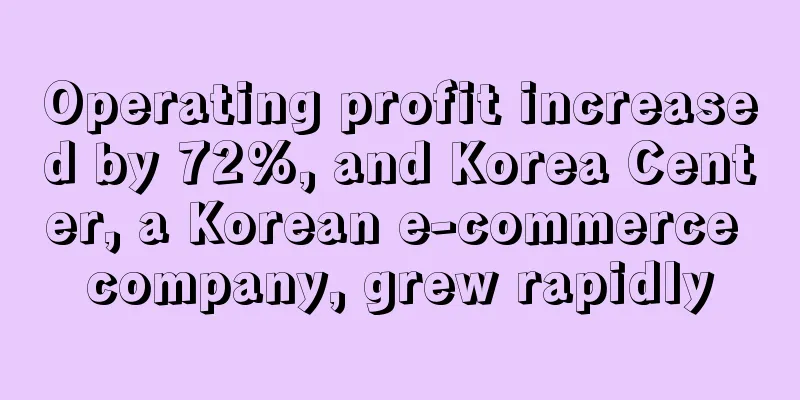UAE market demand rebounds, retail sales to reach $58 billion this year

|
The Dubai Chamber of Commerce and Industry (DCCI) said in a report that by the end of 2021, UAE retail sales are expected to grow at a rate of 13% to $58 billion. Due to the advancement of COVID-19 vaccination, the 2020 Dubai World Expo, which was postponed to this year, will see a surge in consumer demand in the second half of the year.
Dubai Chamber of Commerce and Industry analyzed the latest data from Euromonitor and believed that the UAE's retail sales are expected to maintain a compound annual growth rate of 6.6% in the medium term, reaching US$70.5 billion by 2025. Among them, the growth rate of store retail is expected to be 5.7%, while the growth rate of non-store retail is expected to reach 14.8%.
The report said that the progress of COVID-19 vaccination in the UAE is expected to boost demand in the second half of this year and attract consumers and tourists to traditional physical stores for consumption. In addition, the 2020 Dubai World Expo will open in Dubai in October this year, which is expected to enable the government to provide support and incentives for businesses at all levels and will also become a key catalyst for the recovery of the retail industry.
In the Middle East and North Africa (MENA) region, the UAE has the highest household e-commerce spending at $2,554 per household, more than double the global average of $1,156 and four times the MENA average of $629.
According to JLL data, Dubai's total retail leasing area reached 110,000 square meters in 2020, bringing the emirate's total retail space to 4.2 million square meters. These data clearly show that the region's retail industry has bucked the trend during the epidemic.
Meanwhile, Abu Dhabi’s retail space stock remains unchanged at 2.8 million sq m. In 2021, Dubai is expected to add 761,000 sq m of retail leasing space, while Abu Dhabi is expected to add 293,000 sq m of retail leasing space by the end of the year.
DCCI said that as new retail space in the UAE continues to open in the short term, with lower rents expected and more options available, the market has become more favourable for tenants, a trend that should support the recovery of the retail business.
According to recent reports from foreign media, as the UAE's COVID-19 vaccination progresses, market demand is expected to rebound in the second half of this year.
The Dubai Chamber of Commerce and Industry (DCCI) said in a report that by the end of 2021, UAE retail sales are expected to grow at a rate of 13% to $58 billion. Due to the advancement of COVID-19 vaccination, the 2020 Dubai World Expo, which was postponed to this year, will see a surge in consumer demand in the second half of the year.
Dubai Chamber of Commerce and Industry analyzed the latest data from Euromonitor and believed that the UAE's retail sales are expected to maintain a compound annual growth rate of 6.6% in the medium term, reaching US$70.5 billion by 2025. Among them, the growth rate of store retail is expected to be 5.7%, while the growth rate of non-store retail is expected to reach 14.8%.
The report said that the progress of COVID-19 vaccination in the UAE is expected to boost demand in the second half of this year and attract consumers and tourists to traditional physical stores for consumption. In addition, the 2020 Dubai World Expo will open in Dubai in October this year, which is expected to enable the government to provide support and incentives for businesses at all levels and will also become a key catalyst for the recovery of the retail industry.
In the Middle East and North Africa (MENA) region, the UAE has the highest household e-commerce spending at $2,554 per household, more than double the global average of $1,156 and four times the MENA average of $629.
According to JLL data, Dubai's total retail leasing area reached 110,000 square meters in 2020, bringing the emirate's total retail space to 4.2 million square meters. These data clearly show that the region's retail industry has bucked the trend during the epidemic.
Meanwhile, Abu Dhabi’s retail space stock remains unchanged at 2.8 million sq m. In 2021, Dubai is expected to add 761,000 sq m of retail leasing space, while Abu Dhabi is expected to add 293,000 sq m of retail leasing space by the end of the year.
DCCI said that as new retail space in the UAE continues to open in the short term, with lower rents expected and more options available, the market has become more favourable for tenants, a trend that should support the recovery of the retail business. middle East |
<<: 80% of experts are positive! Korean automakers will enter the used car market
Recommend
What is Tommy Hilfiger? Tommy Hilfiger Review, Features
Tommy Hilfiger is one of the world's leading d...
Pet consultations increased by 200%, and Koala.com's "Meow and Woof Customer Service" shared live broadcasts on how to celebrate the Chinese New Year with pets
What to cook for pets' New Year's Eve din...
2022 Southeast Asia Spring Bestsellers Released
China's EDG won the championship in 2021, and...
What is Zally
Zally is a free Amazon tool that is mainly used t...
Another track is hot! Shenzhen sellers won 100 million yuan in financing
As people's living standards improve and thei...
What is soulartshop? soulartshop Review, Features
soulartshop is a leading educator in polymer clay ...
What is Keyword Snatcher? Keyword Snatcher Review, Features
Keyword Snatcher is a keyword mining software that...
Net profit of 145 million! Outdoor tycoon becomes popular in Europe and America
In the post-epidemic era, the outdoor economy con...
What is Frank and Oak? Frank and Oak Review, Features
Frank and Oak was founded in Montreal in 2012 with...
What is Bind ERP? Bind ERP Review, Features
<span data-docs-delta="[[20,{"gallery"...
What is SF Express Multimodal Transport Co., Ltd.? SF Express Multimodal Transport Co., Ltd. Review, Features
SF Intermodal Transport Co., Ltd. builds a modern ...
It only took SHEIN sellers 3 months to break through $1 million in monthly sales!
SHEIN's development speed has always been the...
What is Yunju ERP? Yunju ERP Review, Features
Yunju ERP management system is an online ERP syst...
What is bloomingltd? bloomingltd Review, Features
bloomingltd is a hong kong based manufacturing and...









